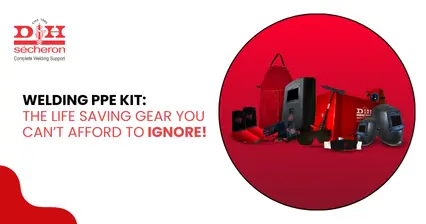Welding in itself is a job where one has to take the utmost precautions and work cannot continue without skipping even one of the steps. Now, imagine underwater welding. It is twice the trouble!
Underwater welding requires the welder to be proficient in their welding practice itself but also be a skilled diver. It is a highly specialized type of welding where people are trained with the skills that they will require along with the precautions they will need to ensure, by hook or by crook. Underwater welding is definitely one of the most dangerous jobs in the world.
Underwater welders are posed with all kinds of hazards, many of which can be severely fatal if proper precautions are not taken.
Let’s discuss some of these hazards:
Electrocution
The biggest threat any welder has is getting electrocuted, it is all the more intensified when it comes to using their welding material underwater. The welding material they use has to have special waterproof coating. All underwater welding tasks have to be done with this specialised water-proofed, insulated and well tested weldings rods and welding material.Drowning
This hazard is why underwater welders have to, without any negotiation, be good swimmers and divers. However, that is just one part of the hazard. The other part is to ensure that the scuba gear the underwater welders wear, has to be of the best quality and has to be checked many times before they start with their project. Even the smallest wear and tear can prove to be lethal here.Explosions
The term ‘explosions’ itself is scary enough for us to worry. Now, explosions on land are still somewhat manageable, but underwater explosions are very risky to the welder-diver. This can occur due to the gas pockets that are created with the oxygen and hydrogen created. If even the smallest of spark ignites it, it becomes fatal.Decompression sickness
This hazard stems from the diver-swimmer part of the job, but nonetheless, is equally important to talk of as an underwater welder does equal parts welding and swimming. In fact, this is also commonly called a 'diver's disease’ and it can occur if the switch from one pressure zone to the other exposes the welder-diver to harmful gases.ENT damage
Being underwater for a long period of time means that one is exposed to high pressure continuously over years. This can lead to some kind of long-term ailments related to the ear, nose, throat and ultimately the lungs.
Along with all of these health hazards, underwater welding also means that the welder-diver will have to be more cognizant of their surroundings, since their work renders them to be exposed to a lot of marine wildlife as well.
All their safety protocols, from the scuba gears, to the welding material and consumables, have to be checked regularly in order to ensure that it is up to health standards and doesn’t leave them exposed to any harm.
While underwater welders have it very difficult, they truly add meaning to our lives by helping create humongous structures amidst the sea that we otherwise would not have been able to!
11 May 2025 | Welding
An In-Depth Exploration of Low-Alloy Steel: Your Comprehensive Guide
11 May 2025 | Welding
Nagpur - Bori - Tuljapur Road MSH-3 in Yavatmal District (Maharashtra)
11 May 2025 | Welding
Guidelines to Understand Gas Welding: Applications, Advantages & Disadvantages
11 May 2025 | Welding
3 Tips for Finding the Best Mild Steel Electrode for Your Application
11 May 2025 | Welding
How to Select the Right Welding Filler Wires for Stainless Steel Welding?
11 May 2025 | Welding
Building the Narendra Modi Stadium with Norma V and Autotherme-1 Electrodes
11 May 2025 | Welding
Low Alloy Steel Welding in a (PEB) Pre Engineered Building Structure
11 May 2025 | Welding
Welding Rods: Different Types and Tips for Properly Storing and Handling
11 May 2025 | Welding
Tips for Flawless Welds with Stainless Steel Electrodes: Pros and Cons
11 May 2025 | Welding
Exploring Applications and Benefits of Stainless Steel Welding Electrodes
11 May 2025 | Welding
Welding Basics: Joining Metals with Heat and Pressure - A Beginners Guide
11 May 2025 | Welding
Distinguishing Low-Alloy Steel from High-Alloy Steel: Understanding the Variations
11 May 2025 | Welding
Hard Facing Wire - Understanding the Process and Achieving Optimal Result
11 May 2025 | Welding
Exploring the Advantages of Stainless Steel Electrodes in Welding Applications
11 May 2025 | Welding
Weathering Steel vs. Traditional Steel: A Comparative Analysis of Performance
11 May 2025 | Welding
Choosing the Right Welding Rod: Why 6013 Electrodes Might Be Your Ideal Option
11 May 2025 | Welding
Why 7018 Electrodes Are Preferred for High-Strength Welds in Pipeline Construction
11 May 2025 | Welding
Filler Wire vs. Stainless Steel Filler Wire: Understanding the Key Differences
11 May 2025 | Welding
Exploring the Impact of Filler Material on Welding Quality and Durability
11 May 2025 | Welding
Choosing the Right Cast Iron Electrode for Different Welding Projects
11 May 2025 | Welding
Top Advantages of Cast Iron Electrodes for Industrial Welding Applications
11 May 2025 | Welding
Key Benefits and Challenges of Using TIG Welding in Industrial Projects
11 May 2025 | Welding
5 Reasons Why 7018 Electrode is the Gold Standard for Welding Professionals
11 May 2025 | Welding
Top 5 Advantages of Flux Cored Arc Welding for Heavy-Duty Applications.png)
11 May 2025 | Welding
Lotherme-601: A Game-Changer for Restoring Shoulder Pins in Heavy Machinery
11 May 2025 | Welding
How D&H Sécheron Helped Repair a Rotary Kiln’s Cooler Section with LoTherme 352
11 May 2025 | Welding
Piston Repair for Mining Industry: Cost-Effective Solutions with LoTherme 468.webp)






.jpg)







































.jpg)
.jpg)

.jpg)

.jpg)





.jpg)
.jpg)
.jpg)



.webp)
.jpg)
.jpg)
.webp)
.jpg)






















.png)



.webp)

.webp)
.webp)



